Facts you should know about the drug Risperdal
Facts you should know about the drug Risperdal: The story behind a drug called Risperdal has a long and winding tail. Moreover, it is a story that has had devastating results for many American families.
Risperdal was developed by Johnson & Johnson (J&J) and its subsidiary Janssen Pharmaceuticals, Inc. in the late 1980s for adults with severe mental disorders like schizophrenia. Risperdal was prescribed “off-label” throughout the 1990s and 2000s to millions of Americans, meaning the prescriptions were legal but outside explicit government approval. The results of those off-label prescriptions have been negatively life-changing for thousands of American teenage boys.
The Huffington Post is in the midst of publishing a 15-part series entitled “America’s Most Admired Lawbreaker” on what the American public should know about J&J, Janssen, and Risperdal. The series’ author is longtime journalist Steven Brill, who has published five books on American economic and social issues, and launched The American Lawyer magazine, Brill’s Content magazine, and Court TV.
Many thousands of teenaged boys have experienced abnormally enhanced breast growth following the prescribed use of Risperdal. A significant number of patients prescribed the drug Risperdal charge that the medication has permanently mutated their bodies.
In a young man who is already isolated by his challenges caused by mental issues, the growth of women’s breasts on his body in adolescent and teenage years is devastating.
Johnson & Johnson is an old company that many of us know by their over the counter products like Band-Aids and baby powder, Tylenol, and Visine.
The company is one of the largest and most admired companies in the world, Brill reports. However, Johnson & Johnson’s real profits come from high-margin medical devices and prescription drugs like Risperdal. “With sales offices and factories worldwide and with annual revenues of $74.3 billion in 2014, Johnson & Johnson has changed a great deal since creating the first aid kit for railroad workers in 1888,” Brill writes.
In the 1990s and into the early 2000s, Johnson & Johnson spent many millions of dollars aggressively marketing Risperdal to doctors and government-run medical facilities. All in an effort to meet billion-dollar annual sales goals despite repeated warnings about off-label use and marketing from the U.S. Food and Drug Administration (FDA), which regulates and monitors adverse effects of prescription drugs.
Risperdal was prescribed off-label to hundreds of thousands of teenage boys with autism to help decrease irritability. For a usually high percentage of these adolescent male patients, the use of Risperdal caused breast growth, including the ability to lactate. After Johnson & Johnson learned of these devastating side effects, it allegedly manipulated the side effect data for years after that.
“By the late 1990s, studies of people using Risperdal and its competitor antipsychotics had started to reveal that young patients showed increases in levels of prolactin — a hormone that at its normal levels enables women to produce breast milk. The data seemed to suggest that Risperdal was the worst offender. Raised prolactin levels in young boys, it was thought, might cause them to grow female breasts, a disease called gynecomastia,” Brill writes.
None of these concerning developments seemed to slow the fevered sales pitch of Johnson & Johnson. “The company also turned to corporate welfare: It paid doctors and others consulting fees and successfully lobbied for the state of Texas to adopt Risperdal in place of generics,” wrote New York Times columnist Nicholas Kristof recently. “This meant that the state paid $3,000 a year for each Medicaid patient taking it, rather than $250 a year for each,” Brill writes.
In 2001, more than 1 million Risperdal prescriptions were written for children and teenagers.
Two years later, Johnson & Johnson launched a marketing campaign for Risperdal called “back to school,” which included Risperdal toys. Risperdal sales boomed. By 2004, Risperdal was a $3-billion-a-year drug.
As Brill notes in the series, many parents have sued Johnson & Johnson on behalf of their sons damaged by Risperdal.
At one trial, a Johnson & Johnson sales manager testified that the directive to focus on children came straight from the Johnson & Johnson home office. The sales manager was asked in court, “In your experience, would promoting Risperdal off-label to children get you fired?” He responded no that he was given a bonus.
Another young man who is now 21 years old started growing breasts when he was 12 that eventually measured 46DD. He took Johnson & Johnson to trial, and a jury found that Risperdal had deformed him.
Johnson & Johnson has already spent about $3 billion settling cases with families, and thousands of cases are making their way thru the court system now.
Read more of Steven Brill’s Huffington Post series on Risperdal.
Young men and the parents of boys harmed by Risperdal can click here to contact The Bongiorno Law Firm for a free, no obligation review of their Risperdal case.
Trademark Notice
Risperdal is a trademark owned by Johnson & Johnson and its subsidiary Janssen Pharmaceuticals and is used for product identification purposes only. The Bongiorno Law Firm, PLLC is not affiliated with any of these companies. This website has not been endorsed or approved by Johnson & Johnson or Janssen Pharmaceuticals.
